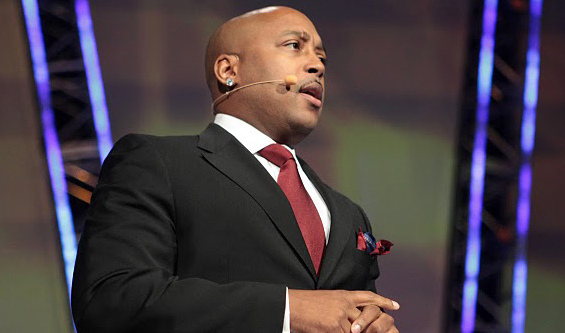Ronald Reagan: Lessons in Leadership
 The Leadership Lessons of Ronald Reagan: A Legacy Worth Studying
The Leadership Lessons of Ronald Reagan: A Legacy Worth Studying
Ronald Reagan was one of the most influential leaders of the 20th century, and his impact on American politics and society is still felt today. He was known for his charismatic personality, clear communication style, and unshakable convictions. Reagan’s leadership style was distinct from other leaders of his time, and it earned him the trust and respect of millions of Americans.
Reagan’s leadership style was characterized by his ability to inspire, motivate, and unite people. He was a skilled communicator who could convey complex ideas in a way that was easily understood by the public. Reagan was also known for his optimism and unwavering faith in the American people, which helped him rally support for his policies and vision for the country.
Reagan’s leadership style was shaped by his experiences as an actor, union leader, and politician. He learned the importance of connecting with people on an emotional level and using storytelling to convey his message. Reagan also understood the power of a strong, clear message and worked hard to ensure that his policies were communicated effectively to the American public.
Throughout his career, Reagan embodied several key leadership principles that helped him achieve his goals and earn the trust of the American people. These principles included his unwavering commitment to his beliefs, his ability to build strong relationships, and his willingness to take risks and make tough decisions.
One of the most important aspects of Reagan’s leadership style was his ability to bring people together. Reagan was a unifying force in American politics, and he worked tirelessly to bridge the divide between Democrats and Republicans. He believed that the American people were capable of achieving great things when they worked together, and he used his leadership to inspire cooperation and collaboration.
Reagan’s leadership also reflected his deep understanding of the American people and their values. He believed in the power of individual freedom and limited government, and he worked to promote these values throughout his career. Reagan’s leadership was characterized by his commitment to personal responsibility, strong families, and a robust economy.
In the following sections, we will explore Reagan’s leadership philosophy and examine the key leadership lessons that can be learned from his career. By studying Reagan’s leadership style and principles, we can gain valuable insights into effective leadership and how to inspire and motivate others to achieve great things.
Reagan’s Leadership Style
Ronald Reagan was widely regarded as a charismatic and effective leader, with a leadership style that was distinct from many other political figures of his time. His leadership style was marked by his ability to connect with people, inspire them to action, and instill a sense of confidence and optimism in his vision for America’s future.
One of the defining characteristics of Reagan’s leadership style was his communication skills. He was a master of using stories and analogies to make complex ideas easy to understand, and he had a unique ability to speak directly to the hearts and minds of the American people. Reagan’s communication style was simple, clear, and direct, which allowed him to communicate his vision for the country in a way that resonated with a broad range of people.
Another key aspect of Reagan’s leadership style was his unwavering commitment to his beliefs and principles. He was a man of strong convictions, and he never wavered in his commitment to his values, even in the face of opposition or criticism. This steadfastness in his beliefs gave him credibility and authenticity in the eyes of the American people, who saw him as a trustworthy leader who could be relied upon to do what he believed was right.
Reagan’s leadership style was also marked by his ability to build strong relationships with people. He had a natural warmth and friendliness that made him approachable and likable, even to those who disagreed with him. He was skilled at reaching across party lines and building bridges between people of different backgrounds and viewpoints, which helped him to achieve many of his policy goals.
Reagan’s leadership style was marked by a deep sense of optimism and confidence in the American people. He believed that the American people were capable of achieving great things, and he was committed to empowering them to do so. This sense of optimism and confidence was infectious, and it helped to rally support for his policies and vision for the country.
Examples of how Reagan’s leadership style influenced his decisions and actions can be seen throughout his presidency. One example is his approach to the Cold War. Reagan believed that the Soviet Union was a threat to global peace and security, and he was committed to standing up to Soviet aggression. He used his communication skills to convey the urgency of the situation to the American people and the world, and he built strong relationships with leaders in other countries who shared his concerns.
Reagan’s leadership style also influenced his approach to the economy. He believed in the power of free markets and limited government, and he worked to promote these values throughout his presidency. He used his communication skills to explain his policies to the American people, and he built strong relationships with business leaders who supported his vision for the economy.
Ronald Reagan’s leadership style was marked by his ability to connect with people, communicate effectively, and inspire them to action. He was a man of strong convictions, who never wavered in his commitment to his beliefs, and he worked tirelessly to build strong relationships with people of different backgrounds and viewpoints. Reagan’s leadership style was a key factor in his success as a political leader, and it serves as a valuable example for leaders today who want to inspire and motivate others to achieve great things.
Reagan’s Leadership Philosophy
Ronald Reagan’s leadership philosophy was rooted in a set of principles that guided his actions and policies as a political leader. These principles reflected his belief in the power of individual freedom and limited government, and his commitment to personal responsibility, strong families, and a robust economy. In this section, we will discuss the key principles that guided Reagan’s leadership, and explore examples of how these principles played out in his policies and actions.
Individual Freedom
Reagan believed that individual freedom was one of the most important values that America stood for, and he was committed to protecting and promoting this freedom throughout his presidency. He believed that individuals should have the freedom to make their own decisions, to pursue their own goals and dreams, and to reap the rewards of their hard work and dedication.
One of the most significant examples of Reagan’s commitment to individual freedom was his economic policy. He believed in the power of free markets and limited government, and he worked to reduce government regulation and taxation in order to promote economic growth and individual prosperity. This approach helped to create one of the longest periods of sustained economic growth in American history.
Limited Government
Reagan believed that government should be limited in its role and scope, and that individuals and communities should be empowered to make their own decisions and solve their own problems. He believed that the government should not interfere in people’s lives unless it was absolutely necessary, and that it should work to create an environment in which individuals and businesses could thrive and succeed.
Reagan’s commitment to limited government can be seen in his approach to taxes and spending. He worked to reduce taxes for individuals and businesses, and he also worked to reduce government spending and cut wasteful programs. This approach helped to reduce the size and scope of government, and it allowed individuals and businesses to keep more of their hard-earned money.
Personal Responsibility
Reagan believed that individuals had a responsibility to take care of themselves and their families, and that they should not rely on the government for handouts or assistance. He believed in the importance of hard work, self-reliance, and personal responsibility, and he worked to create policies that would encourage these values.
One of the most significant examples of Reagan’s commitment to personal responsibility was his welfare reform policy. He believed that the welfare system had created a culture of dependency, and he worked to create a system that would encourage people to work and take responsibility for their own lives. This approach helped to reduce the number of people on welfare and encouraged individuals to pursue work and self-sufficiency.
Strong Families
Reagan believed that strong families were the foundation of a strong society, and he worked to create policies that would support and strengthen families. He believed that families were essential for raising children, instilling values, and creating a sense of community and belonging.
One of the most significant examples of Reagan’s commitment to strong families was his support for the traditional family structure. He believed that families should be led by a mother and a father, and he worked to create policies that would support this structure. He also supported policies that would encourage parents to be more involved in their children’s education and upbringing.
In conclusion, Reagan’s leadership philosophy was rooted in a set of principles that reflected his belief in the power of individual freedom and limited government, and his commitment to personal responsibility, strong families, and a robust economy. These principles played out in his policies and actions throughout his presidency, and they continue to be an important example for leaders today who want to create a society that values freedom, responsibility, and opportunity for all.
Leadership Lessons from Reagan’s Career
Ronald Reagan’s leadership style and philosophy provide valuable lessons for leaders today, as his approach to leadership was marked by a commitment to individual freedom, personal responsibility, and a sense of optimism and confidence in the American people. In this section, we will highlight some key leadership lessons that can be gleaned from Reagan’s career, and provide examples of how these lessons can be applied in modern leadership roles.
The Power of Communication
One of Reagan’s greatest strengths as a leader was his ability to communicate effectively with people of all backgrounds and viewpoints. He was a skilled orator who could convey complex ideas in a way that was easy to understand, and he was able to connect with people on an emotional level through his storytelling and personal anecdotes.
Modern leaders can learn from Reagan’s communication style by focusing on the importance of clear and effective communication. Leaders who can communicate their vision and values in a clear and concise manner are more likely to gain the trust and support of their followers. By using stories and personal anecdotes, leaders can make their messages more relatable and memorable, and by connecting with people on an emotional level, leaders can inspire and motivate them to action.
The Value of Steadfast Convictions
Reagan was a man of strong convictions who never wavered in his commitment to his beliefs and principles, even in the face of opposition or criticism. He believed that leaders should have a clear sense of purpose and direction, and that they should be willing to stand up for what they believe in, even if it means taking risks or facing criticism.
Modern leaders can learn from Reagan’s commitment to his convictions by being clear and consistent in their values and principles. Leaders who are willing to stand up for what they believe in, even in the face of opposition or criticism, are more likely to gain the respect and admiration of their followers. By staying true to their convictions, leaders can create a sense of trust and authenticity that will inspire others to follow their lead.
The Importance of Building Relationships
Reagan was a master at building relationships with people of different backgrounds and viewpoints. He believed in the power of collaboration and cooperation, and he worked tirelessly to bridge the divide between Democrats and Republicans, labor and management, and other groups that were often at odds with each other.
Modern leaders can learn from Reagan’s approach to building relationships by focusing on the importance of trust, respect, and empathy. Leaders who can build strong relationships with their followers, colleagues, and other stakeholders are more likely to be successful in achieving their goals. By showing respect and empathy for others, leaders can create a sense of mutual trust and cooperation that will help them to achieve their goals more effectively.
The Need for Vision and Optimism
Reagan was a leader who had a clear vision for the future, and he was committed to promoting a sense of optimism and confidence in the American people. He believed that leaders should inspire and motivate their followers, and that they should focus on the positive aspects of their vision, rather than dwelling on the negative.
Modern leaders can learn from Reagan’s focus on vision and optimism by emphasizing the positive aspects of their vision for the future. By inspiring and motivating their followers, leaders can create a sense of energy and enthusiasm that will help to drive their efforts forward. By focusing on the positive aspects of their vision, leaders can create a sense of hope and confidence that will help to overcome the inevitable obstacles and setbacks that they will face.
Reagan’s leadership style and philosophy provide valuable lessons for modern leaders who are seeking to inspire and motivate their followers to achieve great things. By focusing on the importance of communication, steadfast convictions, building relationships, and promoting vision and optimism, leaders can create a sense of trust, respect, and confidence that will help them to achieve their goals and make a positive impact on the world. These lessons are especially relevant in today’s complex and rapidly changing world, where leaders must navigate new challenges and opportunities in order to create a better future.
By studying Reagan’s leadership style and philosophy, modern leaders can gain valuable insights into effective leadership and how to inspire and motivate others to achieve great things. They can learn how to communicate effectively, stay true to their convictions, build strong relationships, and promote a sense of optimism and vision. These are essential skills for any leader who wants to make a lasting impact on the world and create a better future for themselves and others.
Reagan’s legacy as a leader continues to inspire people around the world, and his leadership lessons and principles continue to be studied and applied in modern leadership roles. By understanding and applying these lessons, leaders can create a better future for themselves, their organizations, and society as a whole.
Reagan’s Legacy
Ronald Reagan’s leadership left a lasting impact on American politics and history, and his legacy continues to be felt today. His leadership style and philosophy helped to shape American politics and society in the latter half of the 20th century, and his principles and values continue to inspire leaders around the world.
Reagan’s legacy can be seen in many aspects of American life, including economic policy, foreign policy, and the role of government. He believed in the power of free markets and limited government, and he worked to reduce government regulation and taxation in order to promote economic growth and individual prosperity. This approach helped to create one of the longest periods of sustained economic growth in American history, and it continues to be a central tenet of American economic policy today.
Reagan’s legacy in foreign policy is also significant, as he played a key role in ending the Cold War and promoting democracy and freedom around the world. He believed in the importance of standing up to totalitarian regimes and promoting human rights and individual freedom, and his leadership helped to bring an end to the Soviet Union and the threat of nuclear war.
Reagan’s legacy is also reflected in the role of government in American life. He believed in the power of personal responsibility and strong families, and he worked to create policies that would encourage these values. He also believed in the importance of limiting the role of government in people’s lives, and he worked to reduce government spending and cut wasteful programs.
The enduring relevance of Reagan’s leadership lessons and philosophy can be seen in the ongoing debates and discussions around American politics and society. His commitment to individual freedom, limited government, personal responsibility, and strong families continues to be a central tenet of conservative politics, and his vision for America’s role in the world continues to shape American foreign policy.
Modern leaders can learn from Reagan’s legacy by focusing on the importance of clear and effective communication, steadfast convictions, building relationships, and promoting vision and optimism. They can learn how to inspire and motivate their followers, how to stay true to their values and principles, how to build strong relationships with others, and how to create a positive vision for the future.
Reagan’s legacy as a leader is significant, and his leadership lessons and philosophy continue to be relevant today. His commitment to individual freedom, limited government, personal responsibility, and strong families continue to shape American politics and society, and his leadership in ending the Cold War and promoting democracy and freedom around the world continues to inspire leaders around the world. By understanding and applying Reagan’s leadership lessons and principles, modern leaders can create a better future for themselves, their organizations, and society as a whole.
Criticisms and controversies
While Ronald Reagan’s leadership is widely admired, it is not without its criticisms and controversies. In this section, we will explore some of the main criticisms and controversies that have been levied against Reagan, and provide a balanced perspective on his legacy as a leader.
Economic Policy
One of the main criticisms of Reagan’s economic policy is that it led to increasing inequality and a concentration of wealth among the wealthiest Americans. Critics argue that his focus on reducing taxes and government regulation led to a significant increase in income inequality and a decline in the standard of living for many Americans.
While it is true that income inequality increased during Reagan’s presidency, it is important to note that the overall economic growth and job creation that occurred during this time period had a positive impact on many Americans. In addition, it is important to note that Reagan’s economic policy was focused on creating an environment in which individuals and businesses could thrive and succeed, rather than providing handouts or other forms of government assistance.
Foreign Policy
Another area of criticism for Reagan’s leadership is his foreign policy, particularly his support for right-wing governments and armed interventions in Central America. Critics argue that his support for authoritarian regimes and his interventionist policies in countries such as Nicaragua and El Salvador contributed to human rights abuses and political instability in the region.
While it is true that some of Reagan’s policies in Central America were controversial and had negative consequences, it is important to note that his overall vision for foreign policy was focused on promoting democracy and freedom around the world. His support for anti-communist movements in places like Nicaragua was seen as a necessary part of this vision, and he believed that his policies were promoting American values and interests around the world.
Social Issues
Reagan’s leadership has also been criticized for his positions on social issues, particularly his stance on LGBT rights and reproductive rights. Critics argue that his opposition to same-sex marriage and his support for restrictions on abortion and contraception were harmful to the rights and well-being of many Americans.
While it is true that Reagan’s positions on these issues were controversial and remain a source of debate today, it is important to note that his focus on promoting traditional values and strong families was a reflection of his commitment to personal responsibility and individual freedom. While his positions on social issues may have been unpopular with some groups, they were consistent with his broader vision for American society.
Ronald Reagan’s leadership is widely admired, but it is not without its criticisms and controversies. While it is important to acknowledge and address these criticisms, it is also important to view them in the broader context of Reagan’s legacy as a leader. Reagan’s leadership was marked by a commitment to individual freedom, limited government, personal responsibility, and strong families, and his vision for America’s role in the world continues to shape American foreign policy. By understanding and engaging with both the positive and negative aspects of his leadership, we can gain a deeper understanding of his impact on American politics and society.
Reagan’s Leadership: A Lasting Impact on American Politics and Society
Ronald Reagan’s leadership was marked by a commitment to individual freedom, limited government, personal responsibility, and strong families. His leadership style and philosophy helped to shape American politics and society in the latter half of the 20th century, and his principles and values continue to inspire leaders around the world. While his legacy is not without its criticisms and controversies, it is important to view these in the broader context of his impact as a leader.
Reagan’s leadership lessons and principles continue to be relevant today, and modern leaders can learn from his focus on clear and effective communication, steadfast convictions, building relationships, and promoting vision and optimism. By understanding and applying these lessons, leaders can create a better future for themselves, their organizations, and society as a whole.
One of the key takeaways from Reagan’s leadership is the importance of vision and optimism. Reagan was a leader who had a clear vision for the future, and he was committed to promoting a sense of optimism and confidence in the American people. He believed that leaders should inspire and motivate their followers, and that they should focus on the positive aspects of their vision, rather than dwelling on the negative.
This focus on vision and optimism is particularly relevant today, as the world faces many challenges and uncertainties. By focusing on a positive vision for the future, leaders can inspire and motivate their followers, and they can create a sense of hope and confidence that will help to overcome the inevitable obstacles and setbacks that they will face.
In conclusion, Ronald Reagan’s leadership provides a valuable example for leaders today who are seeking to create a better future for themselves, their organizations, and society as a whole. By focusing on the importance of clear and effective communication, steadfast convictions, building relationships, and promoting vision and optimism, leaders can create a sense of trust, respect, and confidence that will help them to achieve their goals and make a positive impact on the world.






